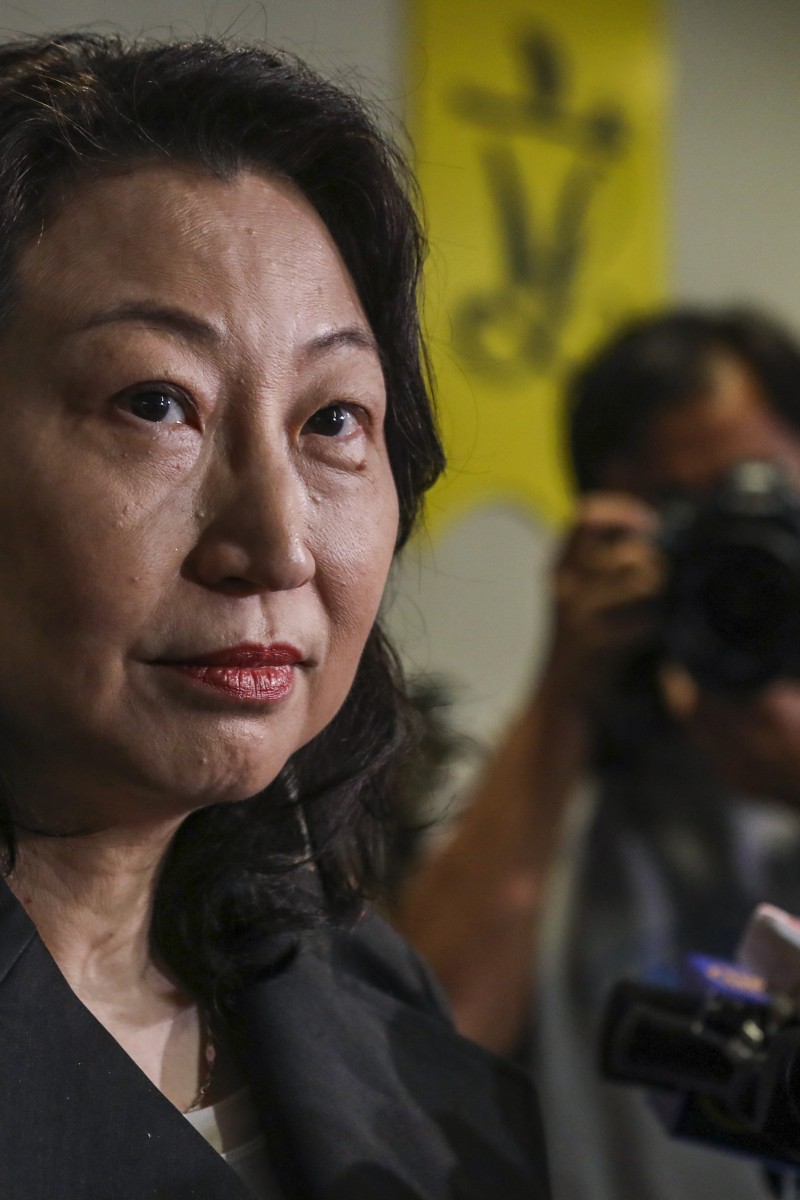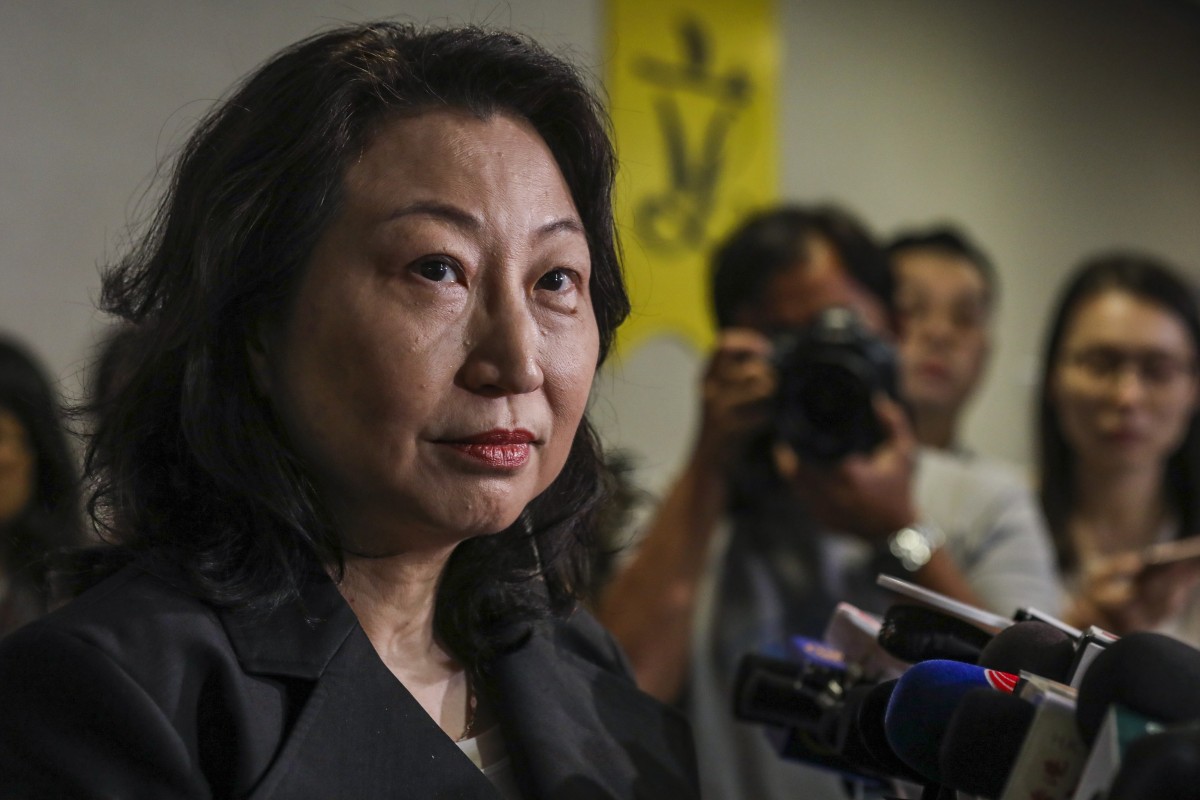
Secretary for Justice Teresa Cheng Yeuk-wah has been accused having political motives for charging demonstrators with rioting, rather than unlawful assembly
 Secretary for Justice Teresa Cheng Yeuk-wah meets the media at the Legislative Council Complex in Tamar.
Secretary for Justice Teresa Cheng Yeuk-wah meets the media at the Legislative Council Complex in Tamar.According to the SCMP, Hong Kong’s Secretary for Justice Teresa Cheng Yeuk-wah verbally agreed to charge protesters with rioting earlier this week, rather than do it through a conventional written agreement. The move has been viewed as eagerness to “fast-track” prosecutions and send a deterrent message to demonstrators.
Two legal sources also said Cheng signed off on using the riot offence as a holding charge, instead of prosecuting the accused on the lesser charge of unlawful assembly, for which they were originally arrested.
43 protesters, including one 16-year-old student, released on bail
Cheng’s hardline stance was revealed after unnamed prosecutors issued an open letter on Wednesday accusing her of applying political considerations in her decisions to prosecute. Her spokesman called the accusations groundless.
Jason Y. Ng, convenor of the Progressive Lawyers Group, said that if the report was true, then the rioting charges could be seen as political persecution.
“It will be a serious blow to the public’s faith in the criminal justice system and the city’s rule of law,” said Ng.
Ng explained that a rioting charge carries a jail term of up to 10 years and is one of the most severe charges in the Public Order Ordinance. The ordinance covers a set of laws in Hong Kong about the maintenance of public order, which includes laws regarding activities such as unlawful assemblies and riots.
At a press conference on Thursday, pro-democracy lawmaker Claudia Mo said it’s strange that the bail money was only HK$1,000, even for a serious charge like rioting.
What to do if you're arrested at a protest
However, Ng explained that bail money is not related to the severity of the charge. Instead, “it’s a function of the [arrested person’s] flight risk and ability to pay”.
On Wednesday, 43 extradition bill protesters – including 13 students – facing riot charges were released on cash bail of HK$1,000 at the Eastern Magistrates’ Courts in Sai Wan Ho.
The day before, a total of 44 protesters were charged with rioting, out of the 49 people that were arrested. This came after clashes with the police last Sunday, when protesters turned a gathering at Chater Garden in Central into an illegal march stretching from Sai Ying Pun to Causeway Bay.
US President Donald Trump calls HK protests 'riots'
One of the protesters charged with rioting, Yan Hoi-ying, 22, did not appear in court on Wednesday and the magistrate issued an arrest warrant.
All but two of the protesters charged with rioting were given curfews running from midnight to 6 am. They must all report to their local police station once a week.
The youngest to appear in court was a 16-year-old girl, while the oldest was a 41-year-old woman.
